Sodium Battery Symposium (SBS-5)
Thank you for a wonderful Sodium Battery Symposium (SBS-5) in Berlin! 31 talks, 90 posters, 10 exhibitors and 330 attendees from academia and industry over 3 fantastic days.
Thanks to everyone who contributed to this event and the many helping hands. Go Sodium!




© Stefan Klenke
Long Night of Sciences 2024
LNDW has been very exciting this year too. it is where curiosity meets discovery and knowledge comes alive! it is an unforgettable night of wonder, learning and inspiration.




Prof. Adelhelm comments on sustainable batteries in the magazine “Good Impact” (vormals enorm Magazin)
See the article by journalist Anne Hünninghaus https://goodimpact.eu/recherche/fokusthema/nachhaltige-ressourcen-mit-sodabatterien-und-wetterwissen

”Science meets Arts”. We are happy to contribute to an exhibition on “Prussian Blue” in the gallery “after the butcher”.
Xiangping from our group studies Prussian Blue compounds as electrodes for Na-ion batteries for her PhD thesis. Prussian Blue was a game changer for arts since the early 18th century. Before that time, the color “blue” was very expensive and hard to get beforehand. The exhibition by Johanna and Helmut Kandl also showcases some of our “Prussian White” and “Prussian Blue” compounds and a video on our research activities. More information can be found here in an article by Robert Klages published in the Tagesspiegel. Thanks also to Sai Patnaik, who published our first paper on Prussian Blue/white.
A talk about the paper and a webinar related to it are hosted by Dr. Katherine Mazzio at the end of August. More information under: https://mrs.digitellinc.com/live/1321/page/6972
A story from our summer student Christian Versteeg from Utrecht UniversityMore information under: After Covid: Why Science Communication matters – Augenspiegel (helmholtz.de)
Long Night of Sciences 2023
This year, once again, it proved to be an amusing experience to engage with the public and participate in discussions about science, particularly when it came to explaining the inner workings of batteries and delving into the depths of our research field.


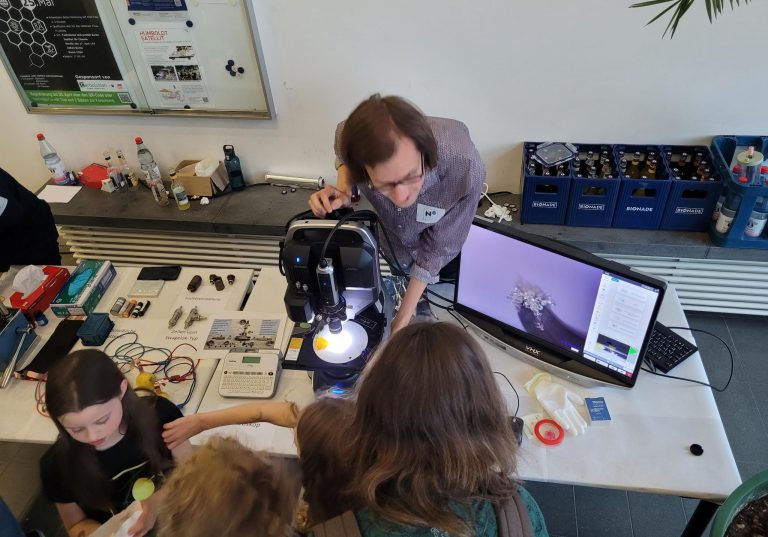


Public “Beilstein talk” by Prof. Adelhelm

Prof. Adelhelm gave a talk on recent trends in Na-ion batteries. The talk is available online under: av.tib.eu/media/62073.
The Beilstein institute is a german foundation with the mission to promote the advancement of the chemical and related sciences – free of charge. More information can be found here.
Sodium (Na) Battery Symposium SBS-3

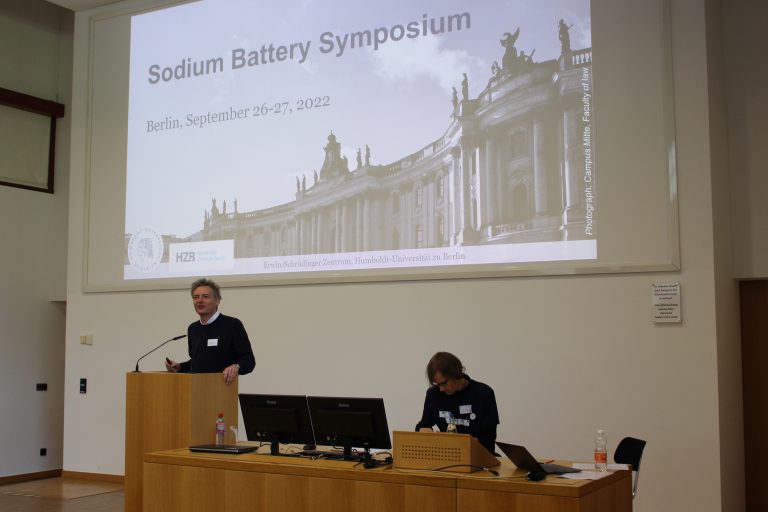
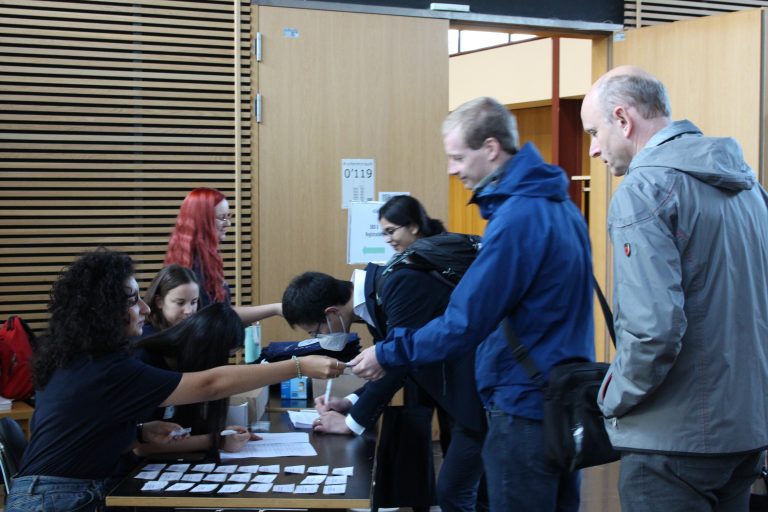


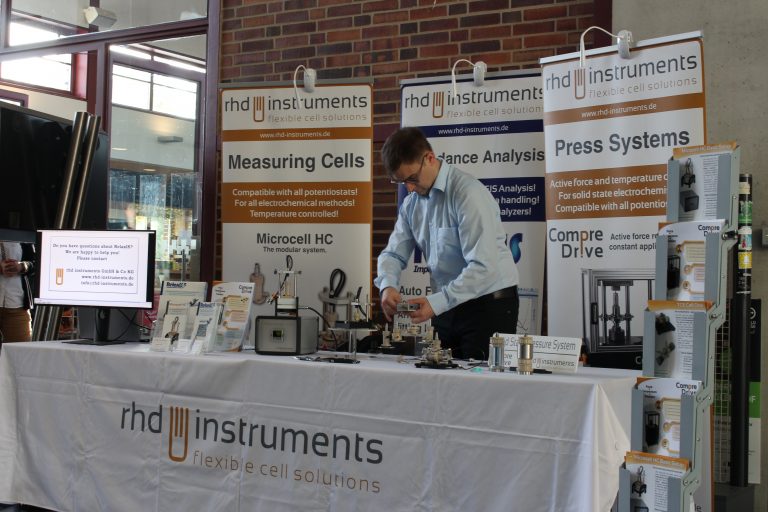
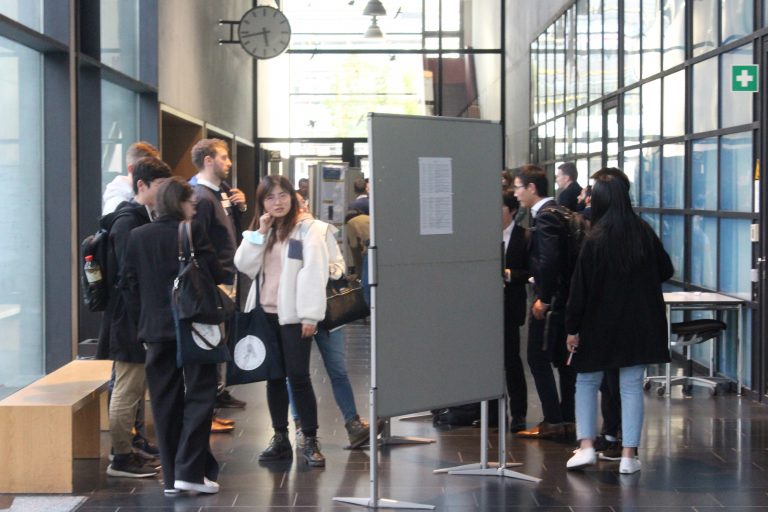

Sodium-ion batteries (SIBs) based on abundant elements are an attractive alternative to lithium-ion and lead-acid batteries. Research on SIBs gained a lot of momentum in the last years and is fueled by press releases of several companies around the world on using the technology for stationary energy storage and electric mobility. After events in Jena (SBS-1, 2018) and Dresden (SBS-2, 2021) the third symposium toke place in Berlin (SBS-3, 2022). The scientific symposium focused on recent trends and discoveries on electrodes and electrolytes for sodium-ion batteries, solid electrolytes / solid-state batteries, intermediate and high temperature, and Na batteries Towards commercialization
Sodium-ion battery technology
Interview with Prof. Adelhelm on the press release by CATL
in Süddeutscher Zeitung (GER) and the Tagesanzeiger (CH).
Article by journalist Andrea Hoferichter.
Ein führender Batteriehersteller verkündet den Durchbruch bei Natrium-Ionen-Akkus.
Diese lassen sich aus Allerweltschemikalien fertigen. Was ist von der Batterie zu halten?
https://www.tagesanzeiger.ch/kochsalz-im-tank-867759732485
https://www.sueddeutsche.de/wissen/batterie-akku-1.5392961?reduced=true (only for subscribers)
Batteries and other energy storage system:
DW documentary with the contribution of
Prof. Dr. Philipp Adelhelm
Min 8:40 – Battery recycling (for Spanish speakers)
Lithium-ion batteries: No electric car will run without them. It takes a relatively long time to charge, the driving time could be even longer, and for many people lithium mining is controversial. Are there alternatives? Link: https://www1.wdr.de/mediathek/audio
Why don’t we have electric cars without lithium yet? Find out here!
Power-to-X:
How to make (nearly) everything
from electricity.
Jonas Geisler
"Guiding Students is part of my job
and I enjoy this role"
PhD supervisor Katherine Mazzio
A native of Portland (Oregon), Katherine Mazzio received her PhD in a dual degree program in Materials Science and Engineering and Nanotechnology at the University of Washington in 2014. For her, obtaining a PhD is a critical training step to becoming a scientist. Right now, she supervises two PhD students, a master student and helps out whenever it is needed in her group. [link]
Batteries & Supercaps/ ChemElectroChem
Joint Virtual Symposium:
Beyond Lithium-Ion Batteries
Prof. Dr. Philipp Adelhelm
How to Land a Faculty Position
From Application to Interview (Part 1):
The Academic Market in Europe
Dr. Katherine Mazzio
This webinar specifically addressed the faculty application process and what makes for an outstanding package for the academic market in Europe. [link]









